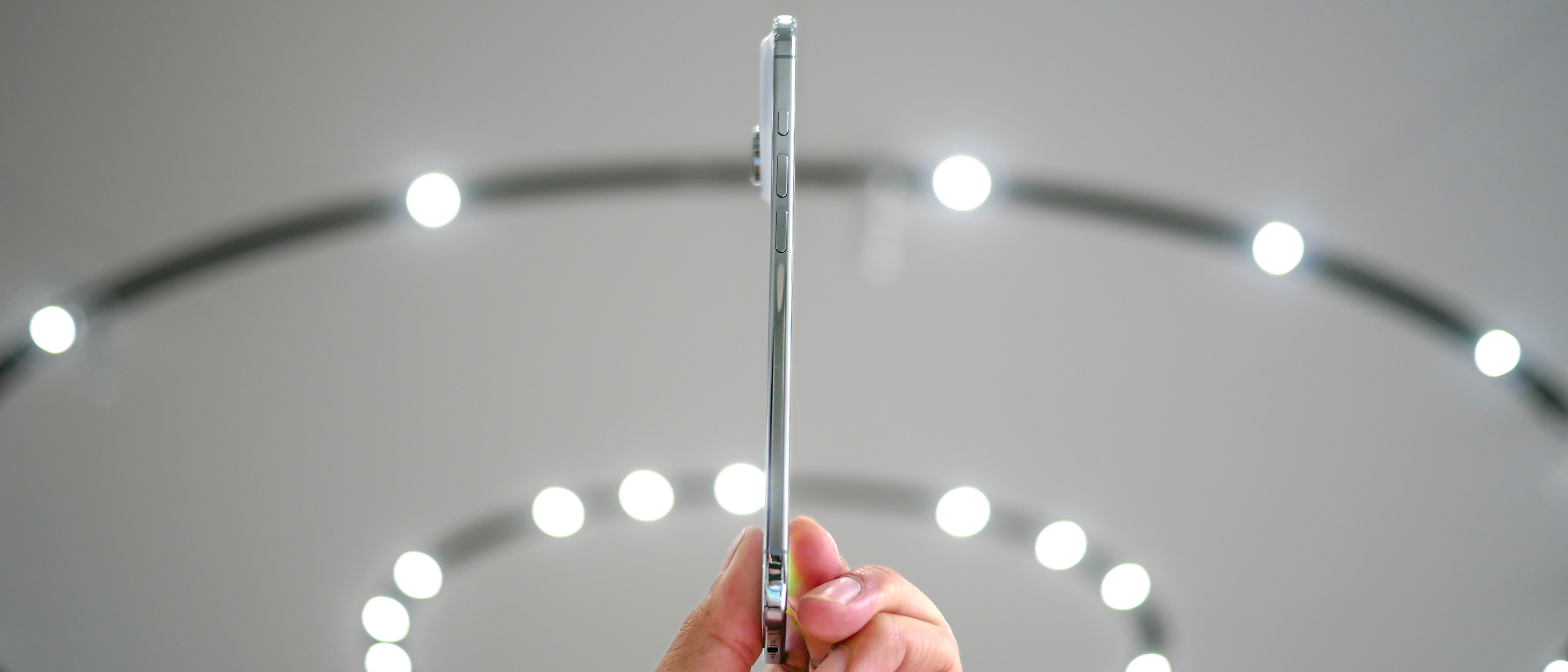The iPhone Air is one of those phones that you have to hold to believe. It’s super thin and light, yet feels super sturdy in your hand thanks to the titanium design. But I know what you’re thinking. What about the compromises?
There’s not a ton here. You get a big and bright 6.5-inch OLED display, powerful A19 Pro chip and a versatile 48MP camera with 2x optical zoom. And Apple promises “all-day battery life,” though we’ll be the judge of that in our testing.
There are some trade-offs when you compare the Air to the best phones. You don’t get an ultrawide lens. And the iPhone 17 Pro and Pro Max have better cameras. But for $999, the iPhone Air could hit that sweet spot for lots of buyers who want incredible portability paired with Pro-ish performance.
iPhone Air release date and price
The iPhone Air starts at $999 for 256GB of storage. That’s $100 more than the iPhone 16 Plus that this model replaces in Apple’s lineup, but that phone started with 128GB. So it’s technically not a price hike.
The iPhone Air is available for pre-orders September 12, and the release date is September 19.
iPhone Air specs
|
Starting price |
$999 / £999 / AU$1,799 |
|
Screen size |
6.5-inch Super Retina XDR display |
|
Refresh rate |
120Hz |
|
Chipset |
A19 Pro |
|
Storage |
256GB, 512GB, 1TB |
|
Rear camera |
48MP Fusion |
|
Front camera |
18MP Center Stage |
|
Battery life |
Up to 27 hours video playback |
|
Size |
6.2 x 2.9 x 0.22 inches (156.2 x 74.7 x 5.64mm) |
|
Weight |
5.82 ounces (165 grams) |
|
Colors |
Sky Blue, Light Gold, Cloud White, Space Black |
iPhone Air design and display
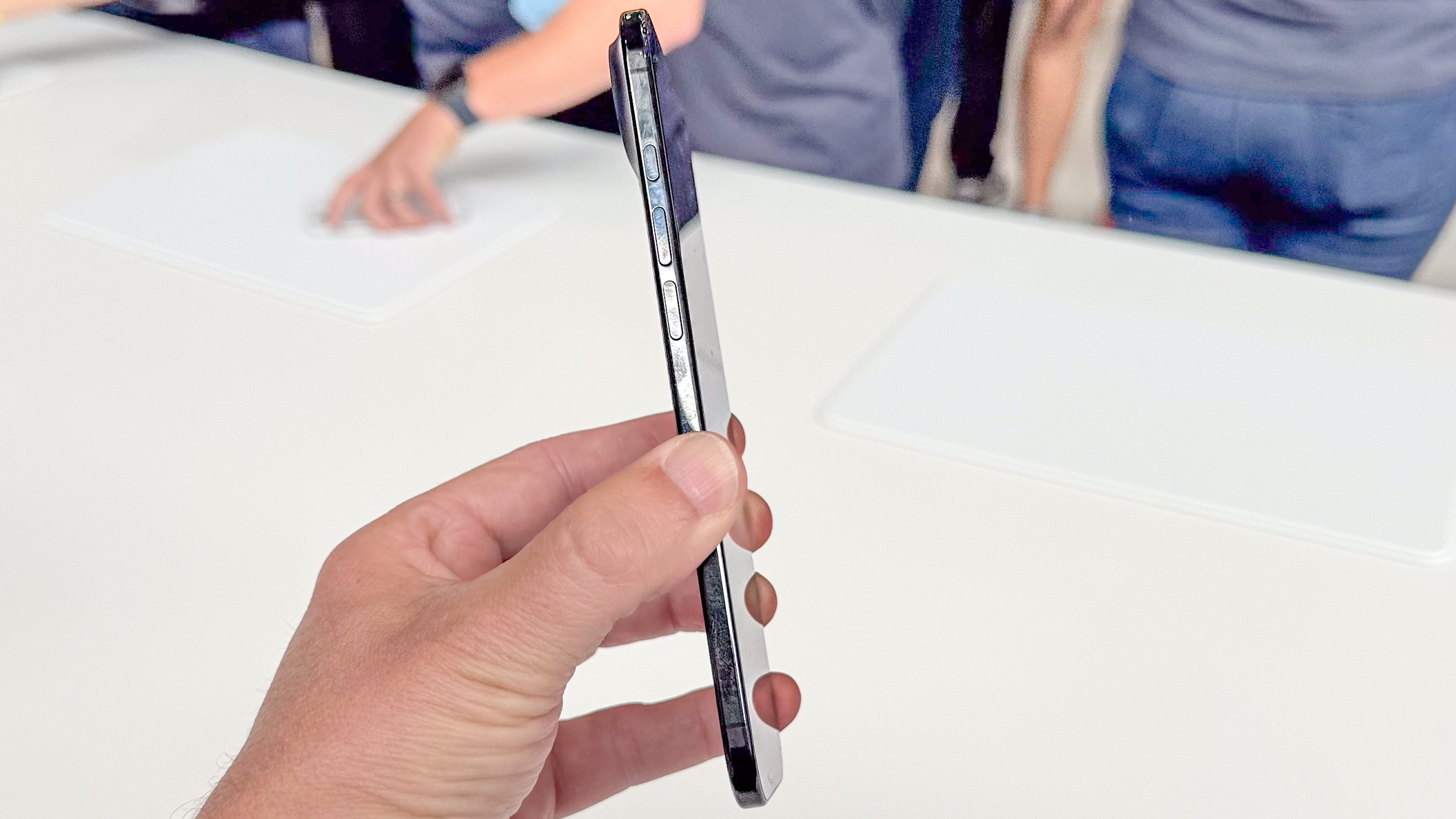
The iPhone Air is a contradiction in your hand — and I mean that in a good way. It feels almost impossibly thin and light yet it also feels rock solid.
Measuring 5.6mm, the iPhone Air is thinner than the Galaxy S25 Edge (5.8mm). And I could tell as I held them both side by side. But the Samsung phone is actually a bit lighter at 5.75 ounces versus 5.82 for the iPhone Air.
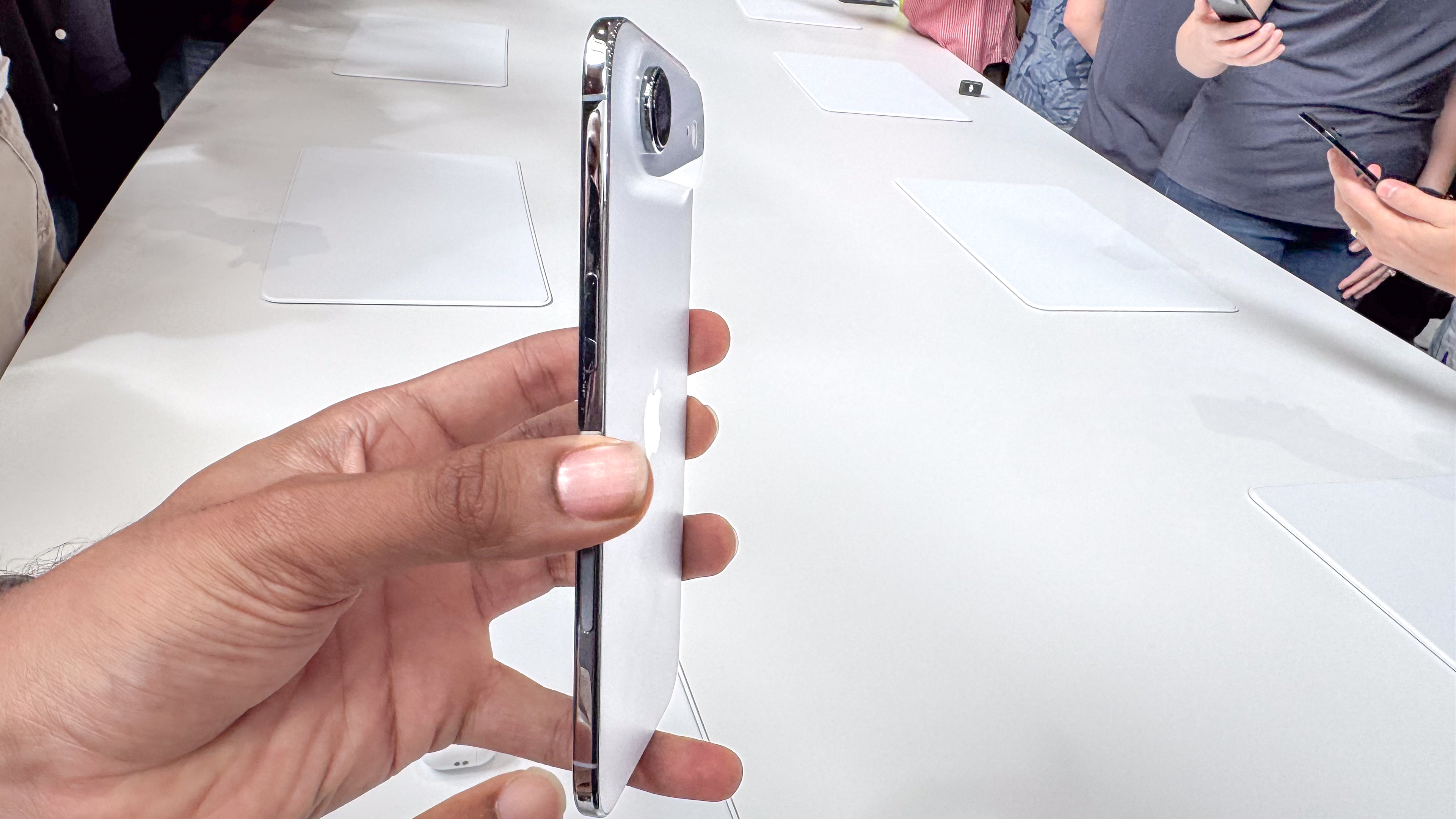
Regardless, this phone almost disappears when you hold it with the side of the iPhone Air facing you. Despite this thinness, Apple promises a very durable design, complete with a titanium frame.
To help your investment last, the iPhone Air features a Ceramic Shield 2 front cover with 3x better scratch resistance, and the back also uses Ceramic Shiled for 4x better resistance to cracks.
In terms of colors, you can take your pick from Space Black, Cloud White, Light Gold and Sky Blue. I’m partial to the blue and white as they really highlight the thinness more.
iPhone Air cameras
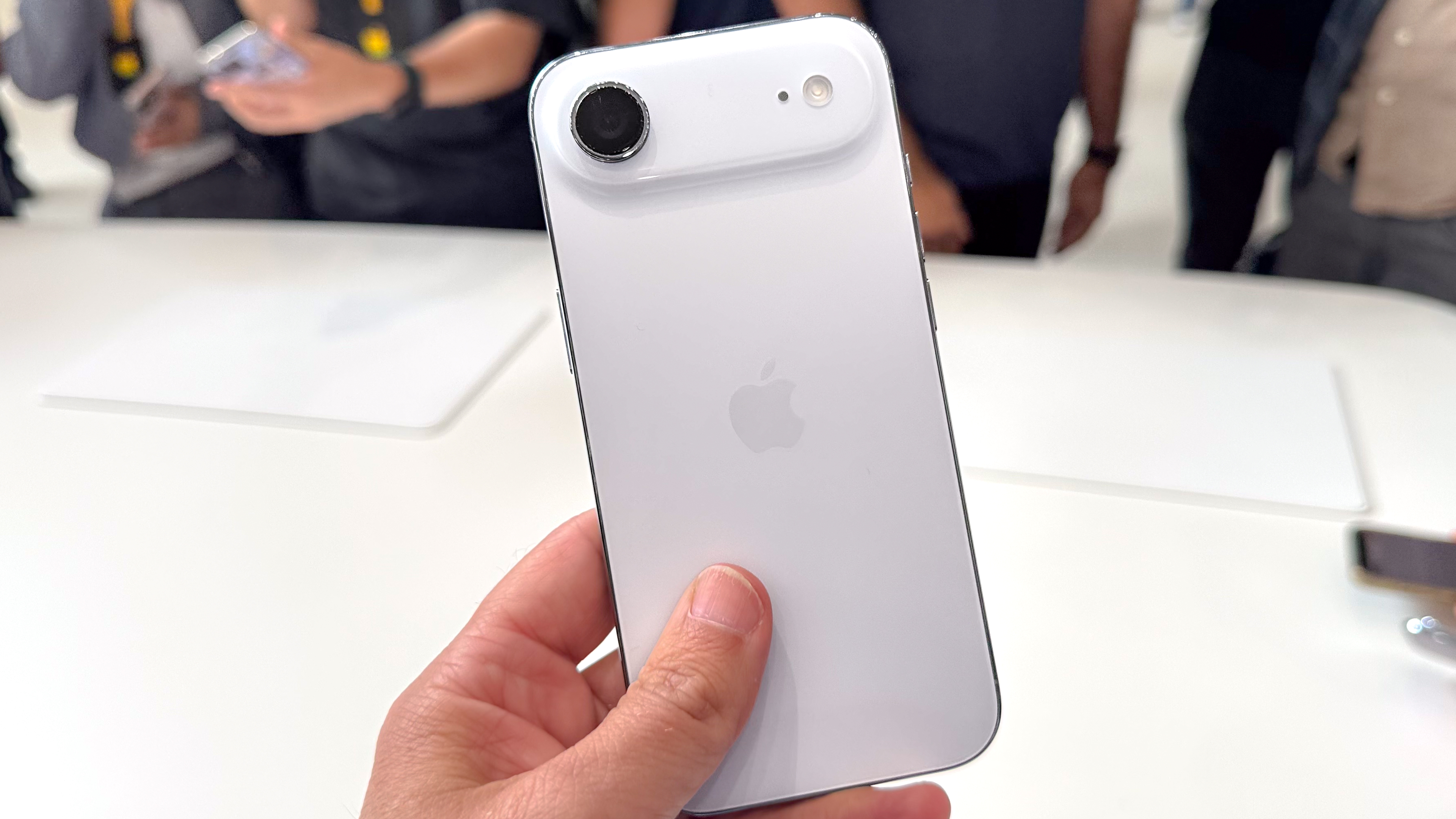
The iPhone Air makes do with a single rear camera, but it’s fairly versatile. The main 48MP Fusion camera gives you the equivalent for four lenses, including a 2x optical quality zoom. The camera samples on display looked impressive, but I look forward to really testing this camera out.
The iPhone Air also gets an updated Photonic Engine that promises to capture better details and color. And the large sensor should capture quality shots in low light.
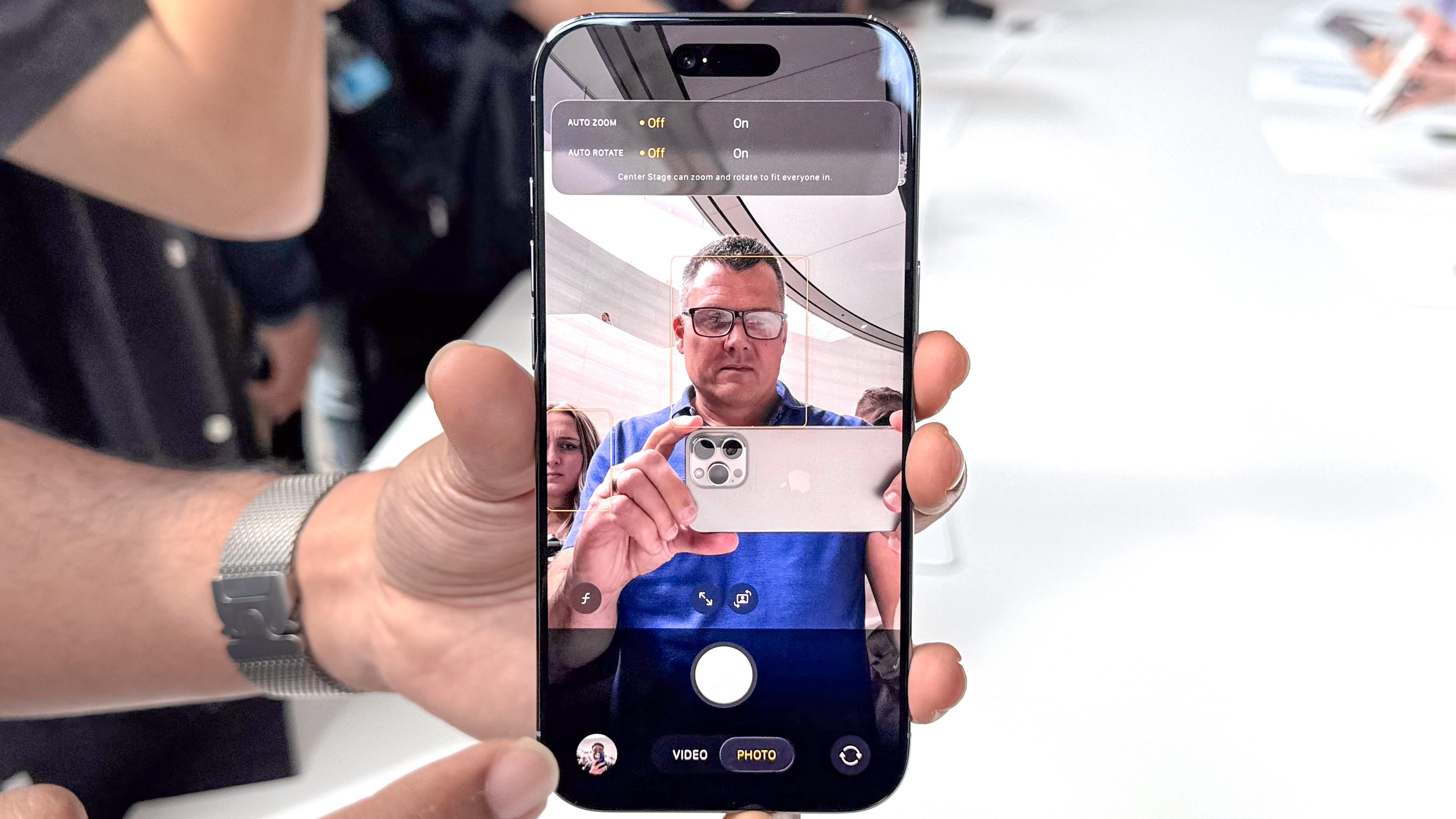
The 18MP Center Stage front camera doesn’t just give you more resolution that the previous 12MP front camera. The square sensor is smart enough to know when you have more people in the frame, automatically switching from portrait to landscape mode on the fly without requiring you to hold the phone any differently. It was pretty cool to see it in person.
iPhone Air performance
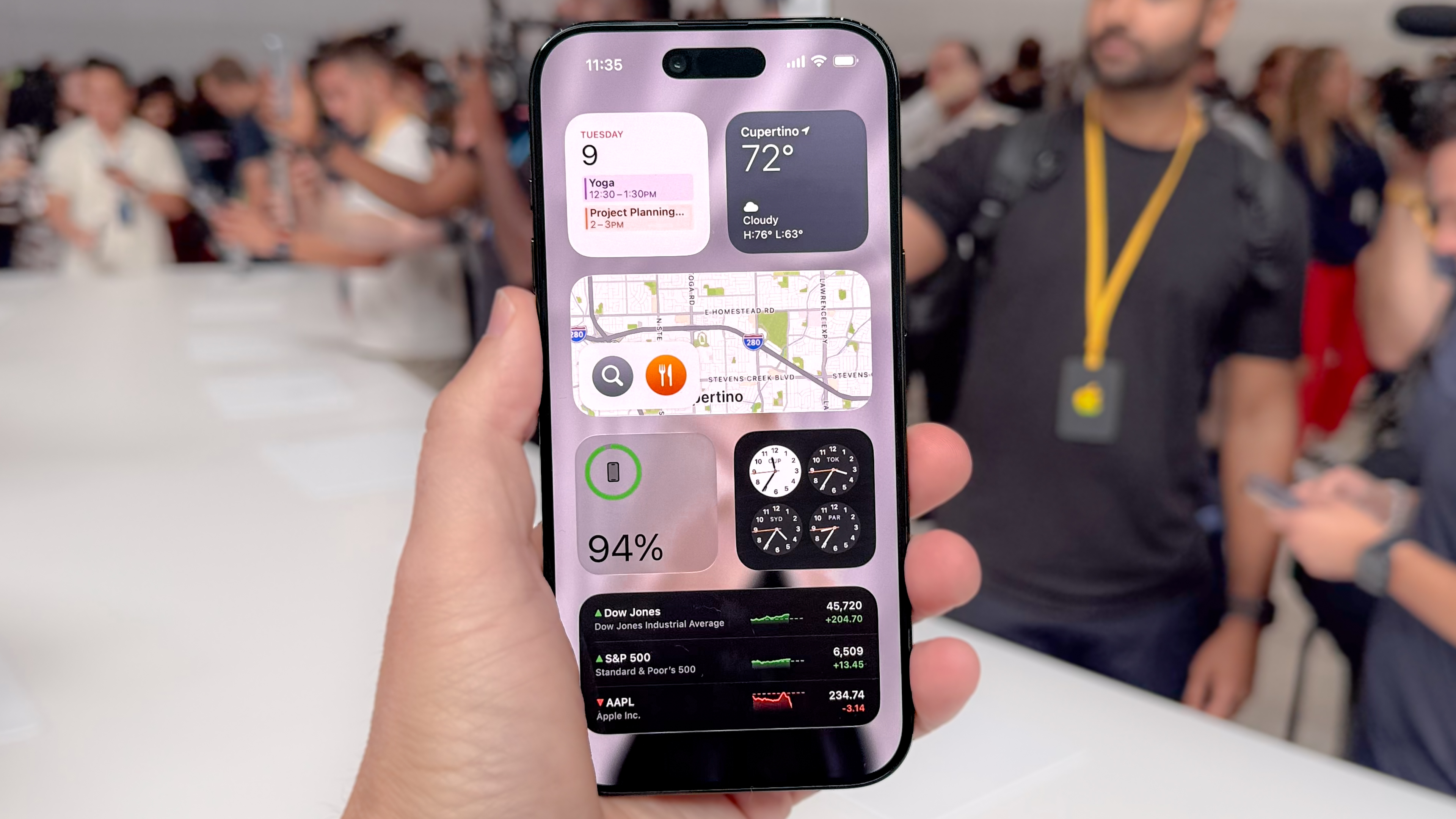
The iPhone Air is powered by the A19 Pro chip, which is the same chip inside the iPhone 17 Pro — minus one graphics core. You get a 6-core CPU and 5-core GPU, so you should be able to play demanding games without a problem.
What you don’t get versus the iPhone 17 Pro and Pro Max is the sustained performance afforded by the vapor chamber cooling system that’s now in the Pro models to keep those phones from overheating.
However, the iPhone Air does pack in a lot of other advanced technologies, including a new N1 networking chip that houses the Wi-Fi 7, Bluetooth 6 and Thread connections. Plus, the iPhone Air boasts Apple’s new C1X modem, which promises 2x faster connectivity than the previous C1 inside the iPhone 16e.
iPhone Air battery life
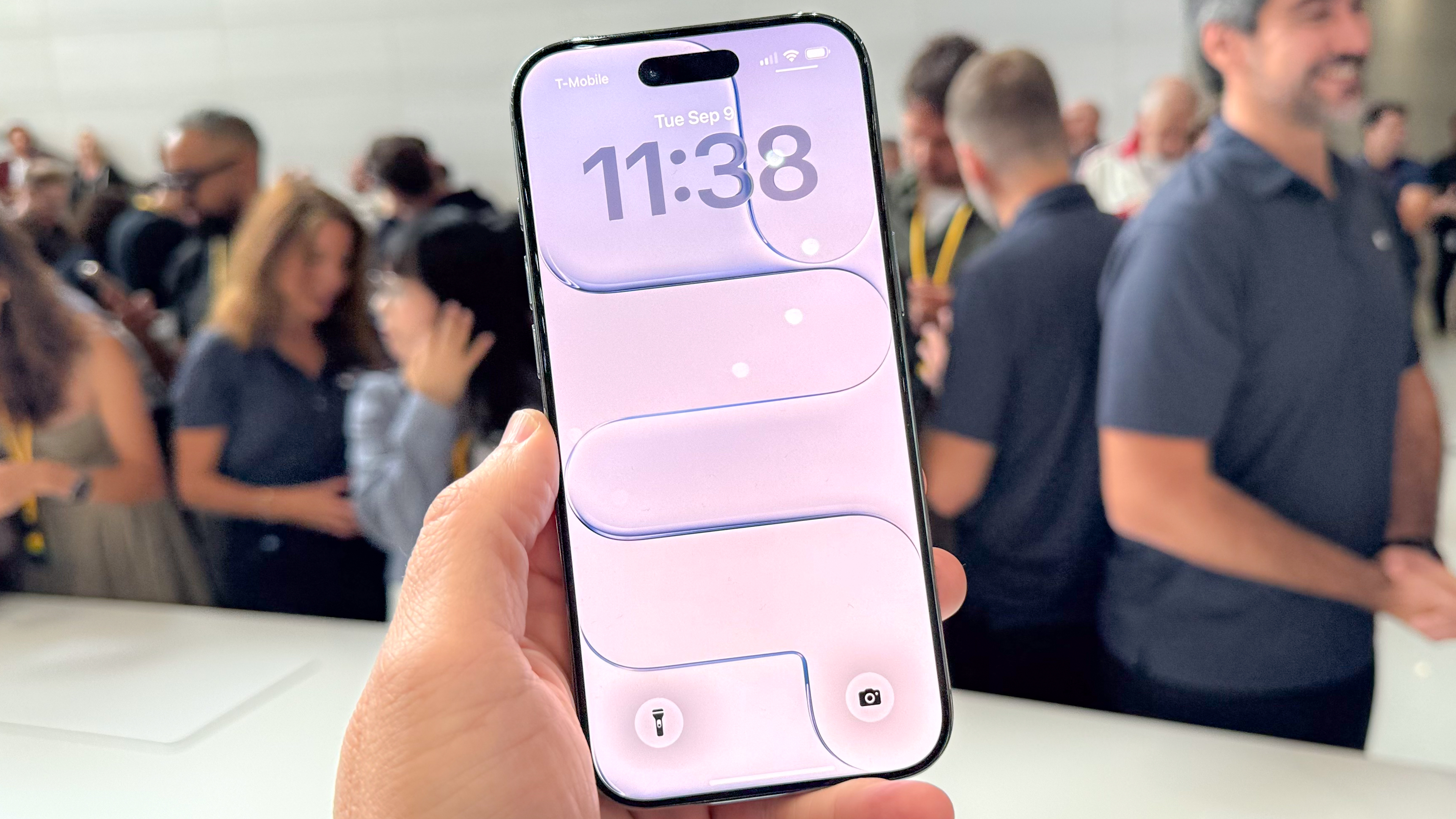
The good news is that the iPhone Air promises “all-day battery life.” But you shouldn’t expect the same level of endurance as the regular iPhone 17 and iPhone 17 Pro or Pro Max.
Apple crammed a pretty large battery inside the iPhone Air (though we don’t know the capacity yet since Apple doesn’t publicly disclose battery sizes), as it moved several key components to the camera bump area, which Apple now calls the plateau. And thank to the Adaptive Power Mode in iOS 26, the iPhone Air should be able to help you conserve juice over time as it learns your battery consumption patterns.
The iPhone Air is rated for 27 hours of video playback, which is 3 hours less than the iPhone 17 and 12 hours less than the iPhone 17 Pro Max. Apple sells a slim MagSafe battery pack for the iPhone Air that brings the endurance to 40 hours, but to me that defeats the purpose of carrying around a thin and light phone.
iPhone Air outlook
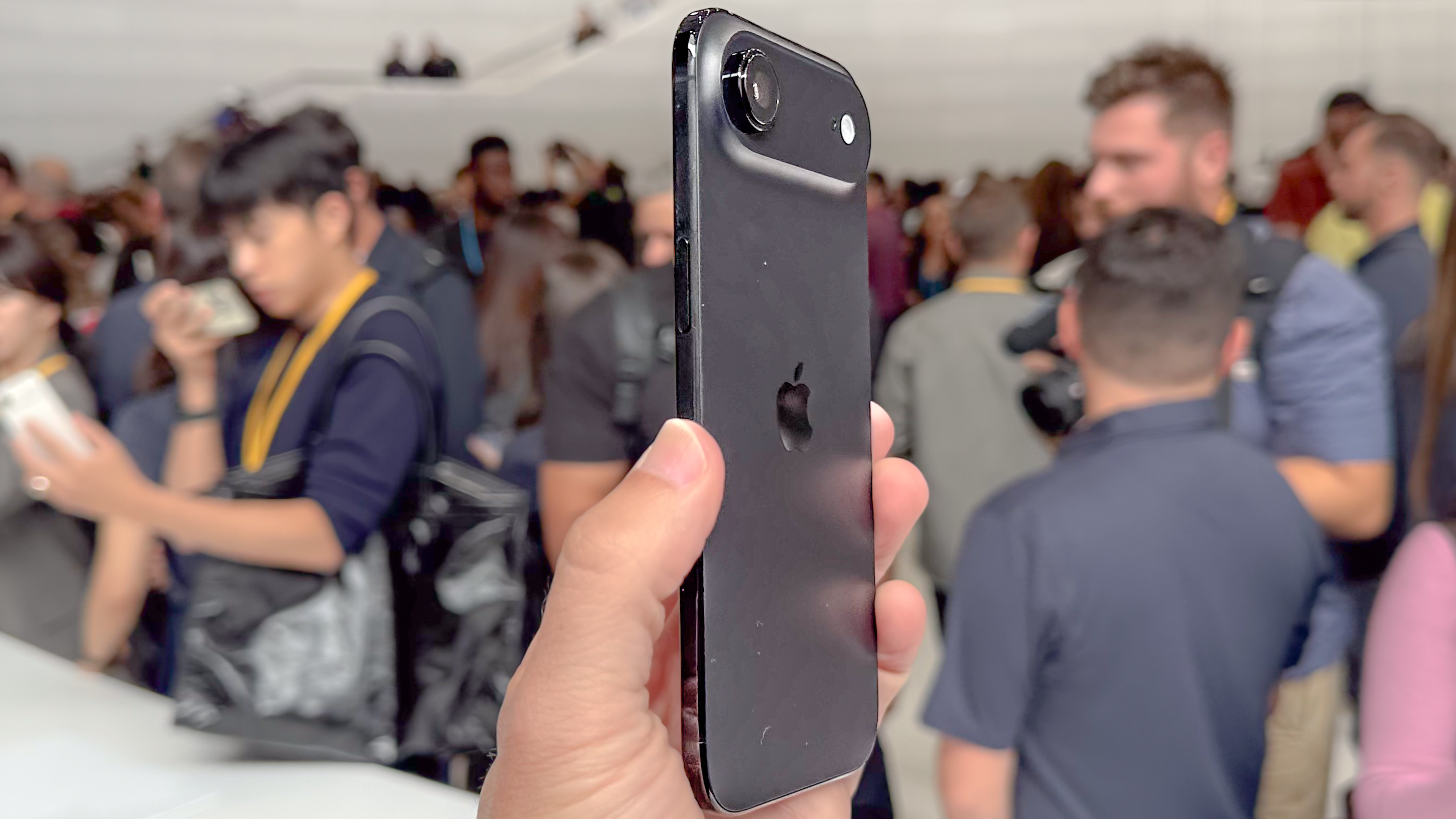
The iPhone Air is more than just another thin phone. It promises flagship-level performance in a design that feels almost impossible. I’m particularly impressed with how durable this handset feels, and I’m sure there will be lots of bend tests coming out soon to put Apple’s claims to the test.
For me, the battery life of the iPhone Air will make or break this phone. It may not have the endurance to make our best phone battery life list, but the Air will have to last through most of your day to be worth $999. Stay tuned for our full rated review.

